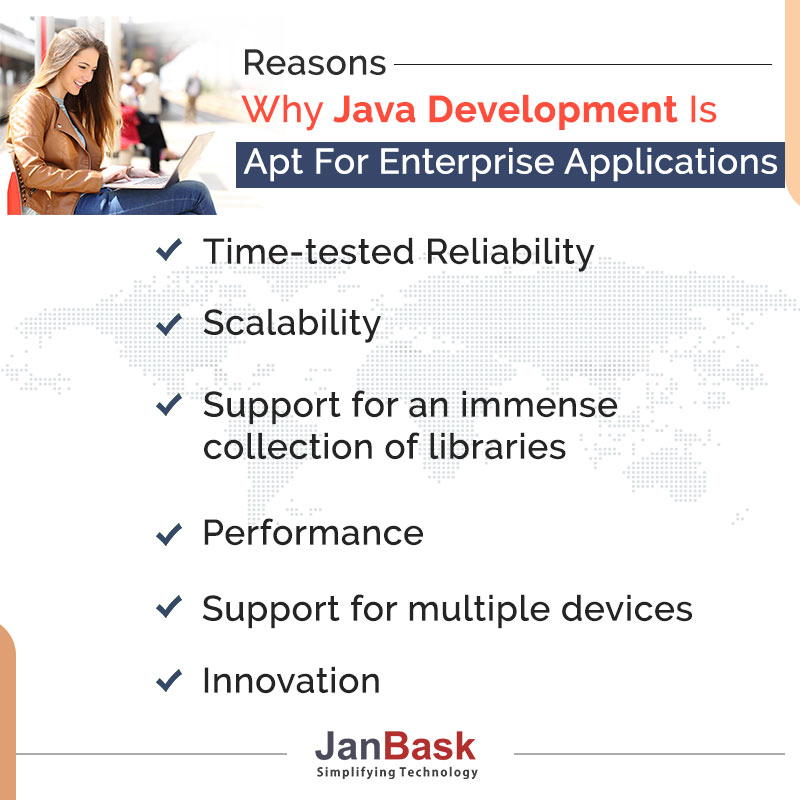
Java is a one of the languages that have gone through decades; this is the programming language that has maintained to go so strong with the fact that many of them are already there in the race. This language is very easy to understand, operate and can also implement effortlessly. This language provides us with so many features consisting of readability, simplicity, and flexibility. Moreover, it comes with an added advantage of being flexible that has the capability of creating applications for small, middle and for enterprises. It is an option that is most cost-effective because of its open-source to nature.

In the latest months, it has clearly discovered that JAVA is experiencing significant changes. With a fact, the addition to the votes that have considerably been changed the name of enterprise JAVA, currently been used as JAVA EE and now shifting to be known as Jakarta EE. The brand consists of its governance handed on the Eclipse Foundation. For those who used coding robust, multifaceted enterprise applications made use of JAVA, playing with the product and coming up and taking a new breath into an already over used DevOps marketplace might sound most awful case circumstance.
But, JAVA has not gone non-operational; however the goal of substituting is to come up with new innovations for Java Developers in order to bring advancement in cloud and into the world of container-driven enterprise.
Java is known as a programming language and a platform that is used for computing the development of an application. It was first released by Sun Microsystem in 1995 and later acquired by Oracle Corporation. This language is used by many developers as a programming language.
Java mainly runs on Java Platform. This platform is a collection of programs that helps in developing and running programs written in the Java programming language. This platform consists of an execution engine, a compiler and set of libraries. Java is known to be platform-independent language. It doesn’t work particularly for any processor or any operating system.
Some of them are:
We have already discussed that Java is a computing platform that depends on the object-oriented programming (OOP). It was introduced in the year 1995 by Sun Microsystems; Java helped by giving a break from other programming languages such as C++ for designing stand-alone applications.
Java presented a lot of it to his first developers in the year 90s, who were very happy to use this language by mixing out the production code. It was basically been designed to have few implementation dependencies that helped to led to the term “write once, run anywhere” (WORA). In this way it helped Java code to sun on all the platforms without any recompiling code; with a fact that it was known for their speed and scalability.
In the year 2010, enterprises that were growing by using Java EE for writing web applications; then there was an end to Forrester for enterprise business, by suggesting that the new technologies to raise the difficulty and rigidity of Java applications. Even though, Java is still been used by many web applications today and many enterprise organizations have made a shift to the approaches that are more responsive. This resulted in making it possible for faster delivery of applications in the cloud.
Java application development is growing constantly. So, if you are looking for an enterprise application that serves your purpose, then you must pick and choose Java. If you still like to see the suitability of Java for enterprise-grade projects, then here are some reasons as to why you should pick Java.

This is the language that is going through many decades; Java is the one who is believed to be reliable, mature and time-tested option which provides millions of applications for the business running at a very high level all through the world. Its sturdiness, addition of flexibility and a platform that runs independently is the right choice for enterprise applications. With fact, it is backed up with a community of developers that make the work easy and provides support whenever required.
Scalability is a very important concern because the need of the business keeps on growing with the development changes. Making it possible for every application to be well-organized according to the needs to be scalable enough to accept the changes required at the time of need. Java enterprise applications, you can easily get sure for this front to be covered properly. Java is highly scalable, making it possible for every application to run easy. Organizations are aligned according to the changing demand, purpose and objective.
The main key role in an enterprise application development is played by libraries. These libraries provide with the basic building block for them. Java works in a very effective form in these applications because it supports a large number of libraries and codes. This library helps the developers to create applications that are more agile, making it more result-oriented and translates with the fast-moving markets.
Java is known for its speed, reliability, security and portability. It also makes it available with a range of tools, plug-ins, add-ons and framework. These added features and tools make the language more of performance-intensive application for enterprise business. Moreover, this application is having the potential to integrate seamlessly with the help with many other ERP applications. These applications are used by many organizations and are also added into the ecosystem for the future use.
Java is said to be the best option for enterprise application that can easily run on multiple devices. Java language works on the hardware infrastructure with the present processors that remove the technicality need of the applications made with it. Moreover, the setup and maintenance cost of the Java server is more cost-effective as compared to Mac and Windows servers.
Java EE, it’s an extension of this language as it helps in empowering the most innovative enterprise applications. This application helps to run these fixed devices, e.g. sensors and microcontrollers. With the development in Internet and machine technology, it has lead to increasing acceptance of these fixed devices in the enterprise scenario. With the help of these developments, Java can come up with new prospects for enterprises.
The main aim was to take Java to various enterprise operations and significant to make the foundation a modern innovation. The main aim is to come up with a cloud platform where Java developers don’t have to learn 30 different languages in order to get a program made. As an alternative, they can write code in similar languages such as Jakarta EE, along with the person who has experience in Java and to provide services in the cloud.
It’s been since 1990, Java has been a leader in enterprise coding technology. And also it has been called as work of art, it still hasn’t been out of the central figure in the present application architecture because Java has always provided cross-platform for developers to applications, which are rich for their internal and external customers. But, with a switch in fast-moving rapidity of continuous delivery, it is not surprising that Java has a difficult time keeping it.
With the help of ERP applications and embedded systems that have been an essential part of enterprise infrastructure, it gets necessary to get into applications that are competent to fit in. For building this form of applications, Java plays a major role. As Java includes correct features and elements which one always needs for Java professional services. If you are looking for a language that helps to create a value-adding application for your business then Java is the one for you. If all the Java features are put in a correct form then your application can work wonders for an enterprise.
Now, things have changed as “The Eclipse Foundation” enters the marketplace with the peek in the use of Jakarta EE. Jakarta EE has likely made the developers at ease with Java to do the same functions.
Stop, read and acquire deep insights into complex issues
© 2025 Copyright - JanBask.com | Designed by - JanBask Digital Design
Write a Comment